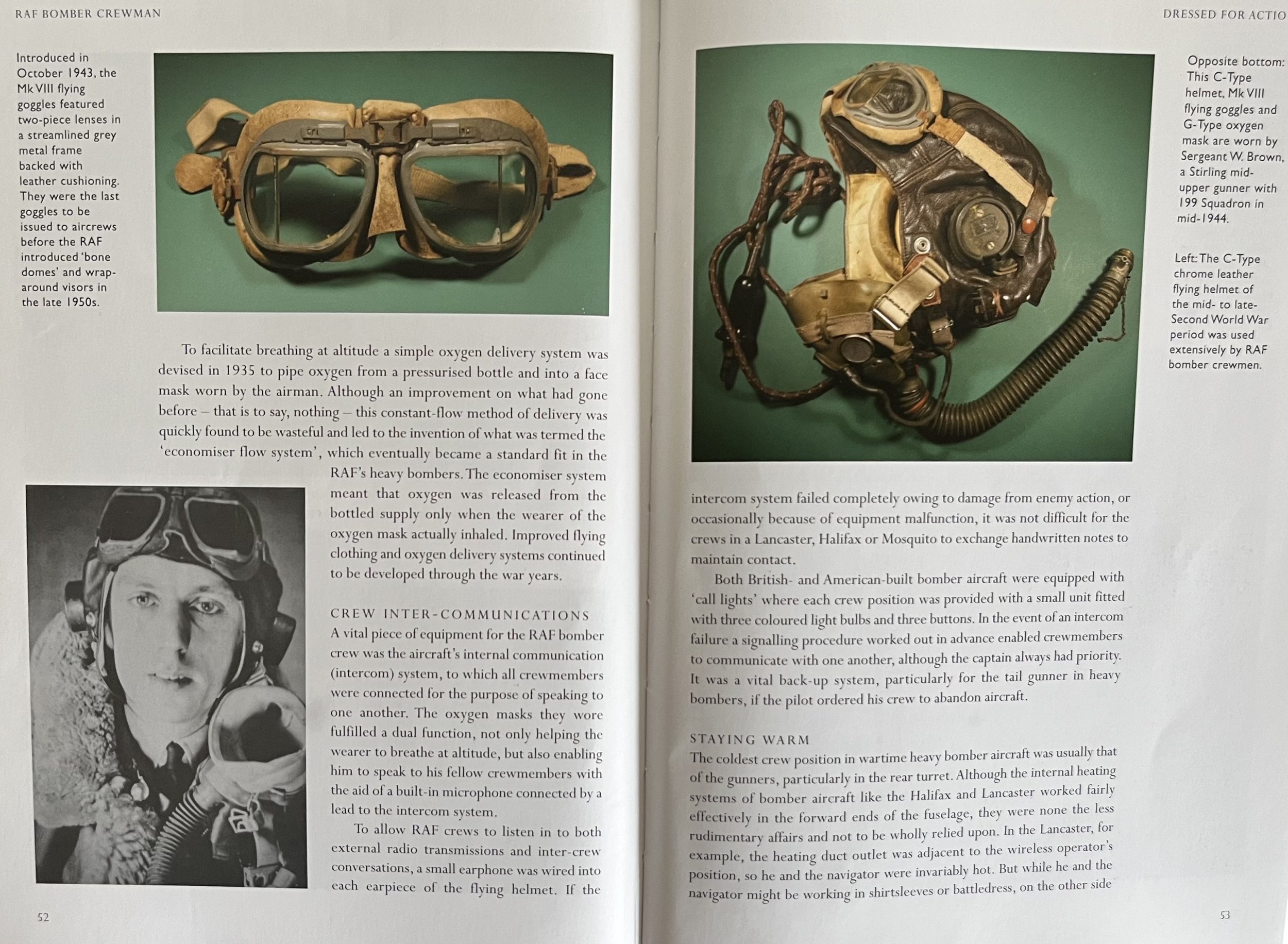RAF 31: RAF BOMBER CREWMAN by Jonathan Falconer ~ Book Review (Revised)
Introduction
Published by Shire Publications, Bloomsbury publishing plc 2010 Jonathan Falconer.
Seven Chapters that include an impressive Prologue and Epilogue respectively, supported by Glossary and Abbreviations, Index, and Further Reading recommendations. A gift from my younger sister and brother-in-law, we share a common interest in the history of both World Wars, not least because we lost four uncles, maternal and paternal in both of them, two over Germany in 1943 and 1945 respectively when serving with RAF Bomber Command (1943) and the RAF Pathfinder Force (1945), the others being three brothers with the British Army on the Western Front in the Great War, our grandfather being the survivor of the three.
Our elder sister has a similar interest that firmly sees the past through the prism of the present. I like that, and I benefit from this enormously.
The book’s front cover caused me to miss a beat!
Was not this the cover I saw on the piano at Windsor Street in the 1950s, where my uncle, Kenneth Ernest Webb, had grown up a generation earlier? Wasn't it the cover of the Royal Air Force publication, superb in detail and at the height of those first two years of total war in 1940 and 1941?
Is this the cover of the RAF publication that my maternal uncle, Harry Alfred Marshall, would have been very aware of as a cadet sergeant in the newly formed Air Training Corps?
Scanning the shelves, it was indeed. Along with its sister publication, RAF Coastal Command.
Sergeant-Pilot Kenneth Webb RAF (1921-1943) had served firstly with Coastal Command at RAF St Eval in Cornwall, flying the impressive but very difficult Armstrong Whitworth Whitley, before his posting to a Heavy Conversion Unit (HCU) for conversion to the four engine Handley Page Halifax.
Our mother’s brother, Temporary Flight Sergeant Harry Alfred Marshall RAF (1924-1945) had also served in Bomber Command before transfer to the elite No. 8 Group Pathfinder Force (RAF PFF), serving with 405 (City of Vancouver) Squadron, Royal Canadian Air Force. The RCAF relied upon the RAF for flight engineers.
So, it thrilled me to see the cover of the book RAF BOMBER CREWMAN fronting Mr Falconer’s superb study.
Bleak
Pilot (Skipper) walking out to his Whitley on an airfield in 1940.
At this stage, I do not know its provenance, and will update this in due course.
But it captures the bleak conditions I recall when visiting RAF St Eval 30 years ago in Cornwall.
Review
I have learned a very great deal more than anticipated, regarding R.A.F. Bomber Command Aircrews and Ground crews. The images are superb, and their captions very detailed and accurate. This has dovetailed perfectly with the family's R.A.F. V.R. service.
RAF Bomber Crewman Jonathan Falconer ~ a relief from pages 38-39 © Jonathan Falconer
RAF Bomber Crewman Jonathan Falconer ~ a relief from pages 46-47 © Jonathan Falconer
RAF Bomber Crewman Jonathan Falconer ~ a relief from pages 52-53 © Jonathan Falconer
RAF Bomber Crewman Jonathan Falconer ~ a relief from pages 56-57 © Jonathan Falconer
The four reliefs of eight facing pages are perfect examples of this publication's quality and of the author's attention to detail, ample evidence of Mr Falconer's breadth of knowledge and expertise. It is now (2023) 78 years since the end of the Second World War. The men and women who fought and survived are fast erasing, as faces disappear from faded photographs from an era, an age that is, quite simply, beyond imagination today.
This is too often reflected in the endless films about the Second World War, about the Strategic Air offensive, about Occupied Europe just to deal with one theatre, and the unfortunate errors by film directors, producers and their researchers, that depict, for example, the London Blitz with all of the street lights on, lights from windows and curtains drawn back, or oddly sounding air raid sirens that have none of the dread of air raid sirens throughout the United Kingdom that, even in the 1960s and 1970s when we tested every Thursday evening in Cheltenham for civil defence, would fill me with a terrible sense of foreboding.
I have learned about aspects of the wartime service of my two RAF uncles from Mr Falconer’s book that would otherwise have passed me by. Something else, too. Military accoutrements, Ken Webb’s flying helmet and goggles that I came across, including two sets of sergeants’ chevrons from one or both uncles within the archive, now have an added dimension because of the meticulous descriptive explanations throughout this book of the equipment in service at the time, some of which I was familiar with in my post-war service. Likewise, the RAF Kitbag with the K E WEBB 1315766 and an earlier name ARNOLD SAMPLER. I suspect that Ken had been issued witn Arnold’s kitbag when Arnold suddenly had n use for it any longer. Just in those two names, we thus catch a glimpse of an RAF Station Wartime Stores, the inventories, the busyness of station stores across the R.A.F in all commands, all theatres throughout the Commonwealth and Empire.
This book’s strength is hinted at within the very title Bomber Crewman. Whenever I read RAF books, I always look for facts that will enable me to better understand the roles of the colossal backup teams of all aircrews in all commands, namely, the Ground crews, without whom, the pilots and their crews would have been rendered impotent. The author leaves me in no doubt that when I read the title Bomber Crewman, I should think of both air and ground.
With the book’s ending Epilogue: Back on Civvy Street, I found myself recalling the many men that I had worked with over a lifetime; only at their funerals did I so often discover that they had been one of Jonathan Falconer’s RAF Bomber Crewmen.
This is a brilliantly researched book. If it isn’t already, it needs to be on your bookshelf.
22 February 2024
All Rights Reserved
LIVERPOOL
© 2024 Eyes to the Skies
First published 29 March 2023





